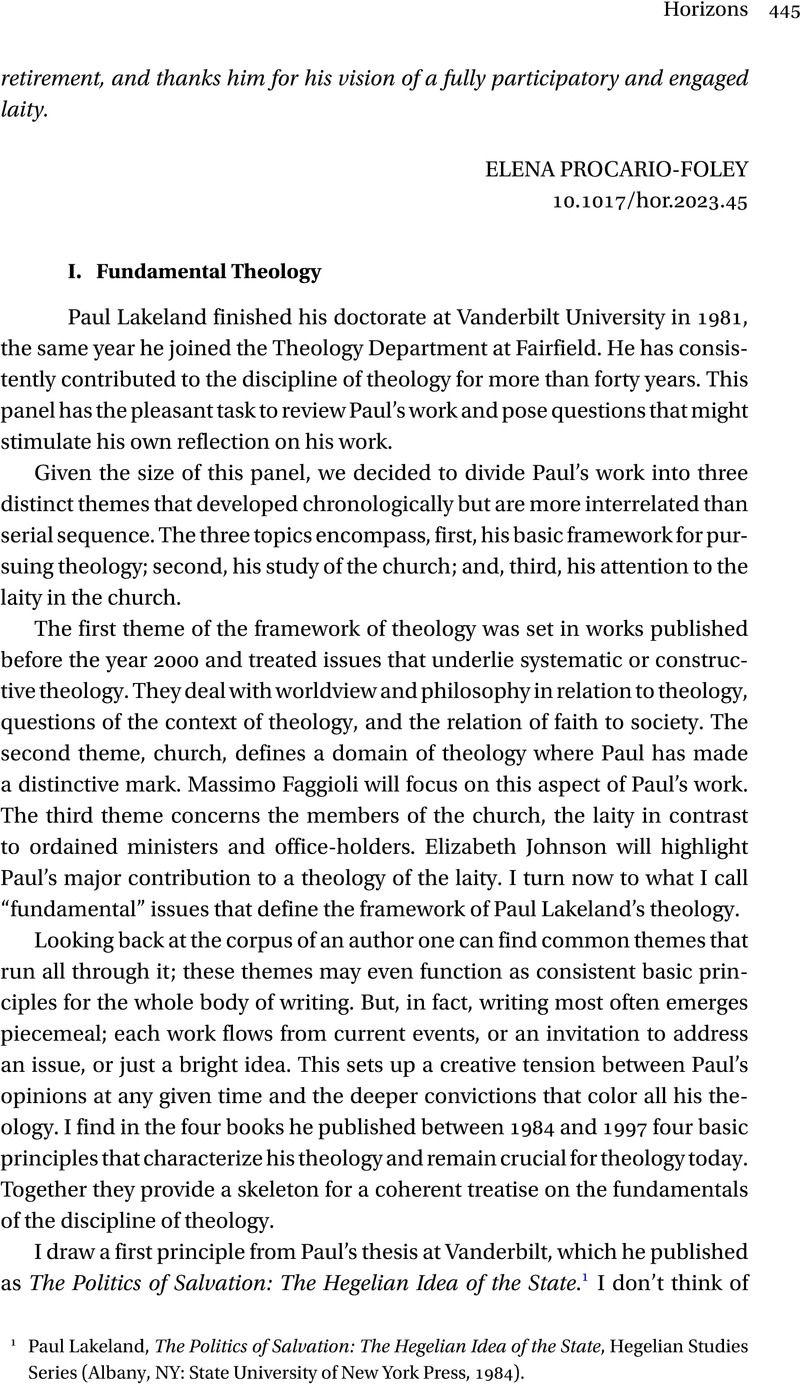No CrossRef data available.
Published online by Cambridge University Press: 08 March 2024

1 Lakeland, Paul, The Politics of Salvation: The Hegelian Idea of the State, Hegelian Studies Series (Albany, NY: State University of New York Press, 1984).Google Scholar
2 Lakeland, Paul, Free in Christ: The Challenge of Political Theology (Leigh-on-Sea, England: Kevin Mayhew Publications, 1984)Google Scholar, and the American edition, revised and expanded, Freedom in Christ: An Introduction to Political Theology (Bronx, NY: Fordham University Press, 1986)Google Scholar.
3 Lakeland, Freedom in Christ, 5.
4 Lakeland, Freedom in Christ, 45.
5 Lakeland, Paul, Theology and Critical Theory: The Discourse of the Church (Nashville, TN: Abingdon Press, 1990).Google Scholar
6 Lakeland, Theology and Critical Theory, 31.
7 Lakeland, Theology and Critical Theory, 49.
8 Lakeland, Paul, Postmodernity: Christian Identity in a Fragmented Age, Guides to Theological Inquiry (Minneapolis, MN: Fortress Press, 1997).Google Scholar
9 Lakeland, Postmodernity, 99.